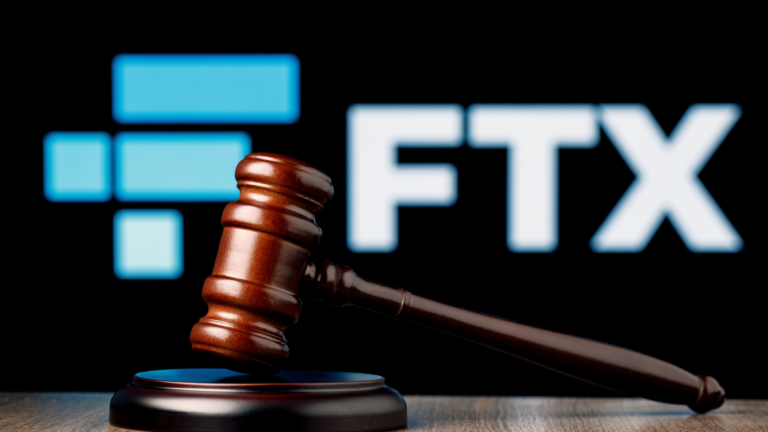FTX lawyers have undertaken a hefty ordeal as they navigate the company through bankruptcy. Atop all of the more par-for-the-course roadblocks of insolvency, the team is representing a company in an industry that lawmakers and regulators alike don’t know how to deal with. Not to mention, its founder has dug himself into a deep hole with his too-candid interviews and policy against maintaining an archive of internal communications. And yet, as these lawyers suggest this week, the company could be aiming for a comeback. The comments drive home the fact that regulations are direly needed in the crypto market.
Lawyers representing FTX’s creditors committee acknowledged that the company is at least considering a reboot, pending its ability to mount an approved turnaround plan and actually execute it. The comments come amid a conflict over whether to release the identities of FTX’s nine million customers.
The team representing these lawyers has been very much against releasing the names of FTX clients for safety reasons. The company will also assess the value of these assets in the case of liquidation. But, as they also acknowledge, the company is looking to “assess the value associated with these assets for a potential reboot.”
It may not come as a surprise that FTX wants to reboot. It filed for Chapter 11 bankruptcy, which companies do when they want to reorganize and attempt to regain solvency. However, Chapter 11 is a highly unsuccessful venture, especially for crypto companies. Less than 10% of filings result in a turnaround. In the crypto space, no company has yet been able to successfully navigate Chapter 11.
FTX Reboot Plan Continues Trend of Disgraced Figures in Crypto
The FTX turnaround plan is highly unlikely, but it continues a trend that crypto investors and regulators must take note of.
Usually, when a disgraced company or individual attempts a comeback in the world of traditional finance, such news is met with contempt and controversy. Accounting firm Arthur Andersen, which dissolved after its role in the Enron scandal, faced scrutiny when it attempted to come back in the early 2010s under the Andersen Tax name. Enron CEO Jeffrey Skilling caused a stir just as he was released from prison in 2019 for trying to break back into the energy sector.
Yet, for all of the blackballing that goes on in the traditional finance world, crypto leaves its arms wide open to people who have wronged investors. Prominent investors have voiced a willingness to not only welcome FTX founder Sam Bankman-Fried back into the industry but invest in his projects once more.
This isn’t the first case of an entity doing investors wrong and returning to crypto, either. Founders of the severely over-leveraged and bankrupted Three Arrows Capital, Su Zhu and Kyle Davies, have been toying with the idea of raising funds for a new project
. Blockchain developer Sifu had been welcomed onto several projects after his role in the QuadrigaCX controversy had been made known. Even Jeffrey Skilling has been looking to use crypto as the vehicle for his own comeback. And ‘Pharma Bro’ Martin Shkreli has turned crypto into his personality after getting out of prison.
Regulations Can Prevent Further Exploitation of Crypto
FTX’s turnaround, even without Sam Bankman-Fried, would continue a trend of disgraced figures turning to blockchain for a career. All of the executives working to put Sam Bankman-Fried in jail, from Alameda Research CEO Caroline Ellison to FTX co-founder Gary Wang, are just as guilty of wronging investors as Bankman-Fried is.
Why does the crypto world put up with a presence of demonstrably bad actors, while Wall Street effectively bars those who have wrong traditional investors? It’s no logical leap to suggest the lack of regulations in crypto has a large part in that. There are no laws saying what one can or can’t do in cryptocurrency. Any sort of charges brought against criminal activity in the space has to rely on existing precedents set in the stock investing world. Those precedents are often fraught with controversy when applied to the crypto space. Controversies in traditional finance also often lead to new regulations that prevent the same activity from reoccurring. Such a trend doesn’t exist in crypto.
This is to say that any prospect of FTX executives returning to crypto should sound alarms across the industry. For well over 10 years, a lack of regulation has allowed bad-faith individuals to exploit the market time and again for personal gain. Regulating the crypto world might not prevent these bad actors from trying to return in the future. However, they can certainly make the industry less of a safe space for them.
On the date of publication, Brenden Rearick did not have (either directly or indirectly) any positions in the securities mentioned in this article. The opinions expressed in this article are those of the writer, subject to the InvestorPlace.com Publishing Guidelines.

